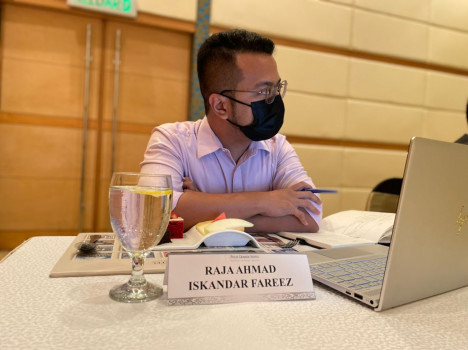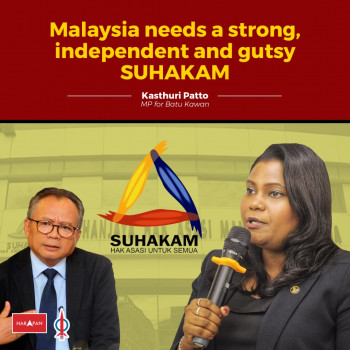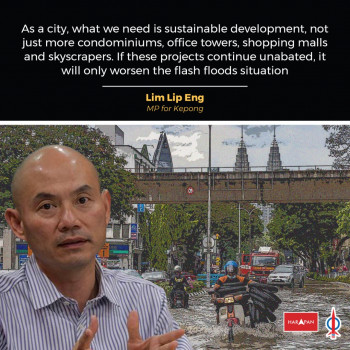A “functional and inclusive democracy” was promised to us by Prime Minister Najib Abdul Razak on Malaysia Day in 2011.
However, when it became apparent that very little was being done to attain this vision even as our democracy was maturing into a two-party system, several civil society groups decided to work on a proposal of recommendations to reform Parliament.
Calling ourselves Gabungan Cadangan Penambahbaikan Parlimen (GCPP), we thought it paramount for Parliament to reflect our robust democracy by being more equitable and accountable as a space for meaningful engagement of the legislative process.
Our proposal, which includes recommendations of MPs from both sides of the political divide as well as input from the Global Movement of Moderates and the Bar Council, presents a brief overview of our demands focusing on four areas:
- Reintroduction of the Parliamentary Services Act
- Parliamentary Committees
- Agenda-Setting in the Dewan Rakyat
- Allocations for Research and Constituency Development
On the first area: The Parliamentary Services Act 1963, which was repealed in 1992, must be restored in a first step towards making Parliament administratively and financially independent of the executive. Both ruling and opposition MPs have actually called for this so the battle is half-won. The other half is subject to the executive’s political will.
As for Parliamentary Committees, with the exception of the Public Accounts Committee (PAC), the current Standing Committees only deal with the inner workings of Parliament. This has resulted in the PAC being over-burdened when it comes to oversight of the executive, which in turn results in legislation being ‘rubber-stamped’ by Parliament.
Our proposal calls for, among others, an increase in Standing Committees. This would be a timely move as it would help us keep up with the ASEAN Inter-Parliamentary Assembly General Assembly, which Malaysia chairs this year, that has standing committees on a host of issues: Political Matters, Economic Matters, Social Matters, Organisational Matters, Joint Communique, Dialogue with Observer Countries, and Women Parliamentarians of ASEAN Inter-Parliamentary Assembly.
The other area that will significantly improve the quality of laws and policy is in the setting of the parliamentary agenda. The current set-up needs to be reviewed for it leaves practically no time to debate Private Member’s Bills or for Non-government Business. We also want an allocation for a Prime Minister’s Question Time and a Shadow Cabinet.
The last area we are emphasising – allocations for research and constituency development – should be self-explanatory. MPs and Senators need timely, up-to-date, accurate and well-researched information for effective decision-making. Consider the practice in the thriving democracy that is our neighbour: Indonesia’s MPs have a personal assistant and a research assistant each, paid for by the state.
Constituency development funds should be scrapped in favour of federal funding for MPs’ office and administration funds; this will put a stop to the current misuse for political campaigning. Development funds, where needed, should be given directly to the local government councils.
A simple comparison of budgetary allocations already shows something is not right with how our Parliament is being run: it receives just RM89 million a year compared with a whopping RM4.5 billion for the Ministry for Transport. How can Parliament be an effective branch of government with so little funding?
The Upper House of Parliament, meant to represent the interests of the states, has had its effectiveness questioned too, to say the least. Since its lethargy is largely owing to a lack of accountability, we are thus proposing an elected senatorship via a state-wide Party List-Proportional Representation System.
We will be presenting our 15-page proposal to Shahidan Kassim in his capacity as the Minister in charge of parliamentary affairs in a meeting we hope to have with him during the Dewan Rakyat session to come.
Gabungan Cadangan Penambahbaikan Parlimen (GCPP, or Parliamentary Reform Proposal Group)*
*GCPP consists of Akademi Belia, Coalition for Clean and Fair Elections (BERSIH 2.0), Engage, Institute for Democracy and Economic Affairs (IDEAS), Political Studies for Change (KPRU), Society for the Promotion of Human Rights (PROHAM), Projek Beres, Tindak Malaysia and Undi Malaysia, supported by Global Movement of Moderates and the Bar Council.




